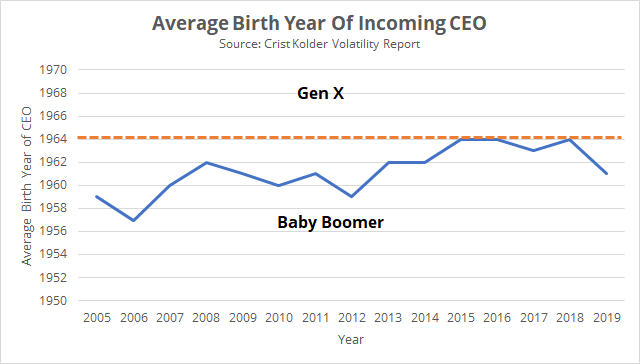- You Shouldn’t Have to Be Good at Your Job (GEN) — "This is how the 1% justifies itself. They are not simply the best in terms of income, but in terms of humanity itself. They’re the people who get invited into the escape pods when the mega-asteroid is about to hit. They don’t want a fucking thing to do with the rest of the population and, in fact, they have exploited global economic models to suss out who deserves to be among them and who deserves to be obsolete. And, thanks to lax governments far and wide, they’re free to practice their own mass experiments in forced Darwinism. You currently have the privilege of witnessing a worm’s-eye view of this great culling. Fun, isn’t it?"
- We've spent the decade letting our tech define us. It's out of control (The Guardian) — "There is a way out, but it will mean abandoning our fear and contempt for those we have become convinced are our enemies. No one is in charge of this, and no amount of social science or monetary policy can correct for what is ultimately a spiritual deficit. We have surrendered to digital platforms that look at human individuality and variance as “noise” to be corrected, rather than signal to be cherished. Our leading technologists increasingly see human beings as a problem, and technology as the solution – and they use our behavior on their platforms as evidence of our essentially flawed nature."
- How headphones are changing the sound of music (Quartz) — "Another way headphones are changing music is in the production of bass-heavy music. Harding explains that on small speakers, like headphones or those in a laptop, low frequencies are harder to hear than when blasted from the big speakers you might encounter at a concert venue or club. If you ever wondered why the bass feels so powerful when you are out dancing, that’s why. In order for the bass to be heard well on headphones, music producers have to boost bass frequencies in the higher range, the part of the sound spectrum that small speakers handle well."
- The False Promise of Morning Routines (The Atlantic) — "Goat milk or no goat milk, the move toward ritualized morning self-care can seem like merely a palliative attempt to improve work-life balance.It makes sense to wake up 30 minutes earlier than usual because you want to fit in some yoga, an activity that you enjoy. But something sinister seems to be going on if you feel that you have to wake up 30 minutes earlier than usual to improve your well-being, so that you can also work 60 hours a week, cook dinner, run errands, and spend time with your family."
- Giant surveillance balloons are lurking at the edge of space (Ars Technica) — "The idea of a constellation of stratospheric balloons isn’t new—the US military floated the idea back in the ’90s—but technology has finally matured to the point that they’re actually possible. World View’s December launch marks the first time the company has had more than one balloon in the air at a time, if only for a few days. By the time you’re reading this, its other stratollite will have returned to the surface under a steerable parachute after nearly seven weeks in the stratosphere."
- The Unexpected Philosophy Icelanders Live By (BBC Travel) — "Maybe it makes sense, then, that in a place where people were – and still are – so often at the mercy of the weather, the land and the island’s unique geological forces, they’ve learned to give up control, leave things to fate and hope for the best. For these stoic and even-tempered Icelanders, þetta reddast is less a starry-eyed refusal to deal with problems and more an admission that sometimes you must make the best of the hand you’ve been dealt."
- What Happens When Your Career Becomes Your Whole Identity (HBR) — "While identifying closely with your career isn’t necessarily bad, it makes you vulnerable to a painful identity crisis if you burn out, get laid off, or retire. Individuals in these situations frequently suffer anxiety, depression, and despair. By claiming back some time for yourself and diversifying your activities and relationships, you can build a more balanced and robust identity in line with your values."
- Having fun is a virtue, not a guilty pleasure (Quartz) — "There are also, though, many high-status workers who can easily afford to take a break, but opt instead to toil relentlessly. Such widespread workaholism in part reflects the misguided notion that having fun is somehow an indulgence, an act of absconding from proper respectable behavior, rather than embracement of life. "
- It’s Time to Get Personal (Laura Kalbag) — "As designers and developers, it’s easy to accept the status quo. The big tech platforms already exist and are easy to use. There are so many decisions to be made as part of our work, we tend to just go with what’s popular and convenient. But those little decisions can have a big impact, especially on the people using what we build."
- The 100 Worst Ed-Tech Debacles of the Decade (Hack Education) — "Oh yes, I’m sure you can come up with some rousing successes and some triumphant moments that made you thrilled about the 2010s and that give you hope for “the future of education.” Good for you. But that’s not my job. (And honestly, it’s probably not your job either.)"
- Why so many Japanese children refuse to go to school (BBC News) — "Many schools in Japan control every aspect of their pupils' appearance, forcing pupils to dye their brown hair black, or not allowing pupils to wear tights or coats, even in cold weather. In some cases they even decide on the colour of pupils' underwear. "
- The real scam of ‘influencer’ (Seth Godin) — "And a bigger part is that the things you need to do to be popular (the only metric the platforms share) aren’t the things you’d be doing if you were trying to be effective, or grounded, or proud of the work you’re doing."
- We Have No Reason to Believe 5G Is Safe (Scientific American) — "The latest cellular technology, 5G, will employ millimeter waves for the first time in addition to microwaves that have been in use for older cellular technologies, 2G through 4G. Given limited reach, 5G will require cell antennas every 100 to 200 meters, exposing many people to millimeter wave radiation... [which are] absorbed within a few millimeters of human skin and in the surface layers of the cornea. Short-term exposure can have adverse physiological effects in the peripheral nervous system, the immune system and the cardiovascular system."
- Situated degree pathways (The Ed Techie) — "[T]he Trukese navigator “begins with an objective rather than a plan. He sets off toward the objective and responds to conditions as they arise in an ad hoc fashion. He utilizes information provided by the wind, the waves, the tide and current, the fauna, the stars, the clouds, the sound of the water on the side of the boat, and he steers accordingly.” This is in contrast to the European navigator who plots a course “and he carries out his voyage by relating his every move to that plan. His effort throughout his voyage is directed to remaining ‘on course’."
- on rms / necessary but not sufficient (p1k3) — "To the extent that free software was about wanting the freedom to hack and freely exchange the fruits of your hacking, this hasn’t gone so badly. It could be better, but I remember the 1990s pretty well and I can tell you that much of the stuff trivially at my disposal now would have blown my tiny mind back then. Sometimes I kind of snap to awareness in the middle of installing some package or including some library in a software project and this rush of gratitude comes over me."
- Screen time is good for you—maybe (MIT Technology Review) — "Przybylski admitted there are some drawbacks to his team’s study: demographic effects, like socioeconomics, are tied to psychological well-being, and he said his team is working to differentiate those effects—along with the self-selection bias introduced when kids and their caregivers report their own screen use. He also said he was working to figure out whether a certain type of screen use was more beneficial than others."
- This Map Lets You Plug in Your Address to See How It’s Changed Over the Past 750 Million Years (Smithsonian Magazine) — "Users can input a specific address or more generalized region, such as a state or country, and then choose a date ranging from zero to 750 million years ago. Currently, the map offers 26 timeline options, traveling back from the present to the Cryogenian Period at intervals of 15 to 150 million years."
- Understanding extinction — humanity has destroyed half the life on Earth (CBC) — "One of the most significant ways we've reduced the biomass on the planet is by altering the kind of life our planet supports. One huge decrease and shift was due to the deforestation that's occurred with our increasing reliance on agriculture. Forests represent more living material than fields of wheat or soybeans."
- Honks vs. Quacks: A Long Chat With the Developers of 'Untitled Goose Game' (Vice) — "[L]ike all creative work, this game was made through a series of political decisions. Even if this doesn’t explicitly manifest in the text of the game, there are a bunch of ambient traces of our politics evident throughout it: this is why there are no cops in the game, and why there’s no crown on the postbox."
- What is the Zeroth World, and how can we use it? (Bryan Alexander) — "[T]he idea of a zeroth world is also a critique. The first world idea is inherently self-congratulatory. In response, zeroth sets the first in some shade, causing us to see its flaws and limitations. Like postmodern to modern, or Internet2 to the rest of the internet, it’s a way of helping us move past the status quo."
- It’s not the claim, it’s the frame (Hapgood) — "[A] news-reading strategy where one has to check every fact of a source because the source itself cannot be trusted is neither efficient nor effective. Disinformation is not usually distributed as an entire page of lies.... Even where people fabricate issues, they usually place the lies in a bed of truth."
- Overrated: Ludwig Wittgenstein (Standpoint) — "Wittgenstein’s reputation for genius did not depend on incomprehensibility alone. He was also “tortured”, rude and unreliable. He had an intense gaze. He spent months in cold places like Norway to isolate himself. He temporarily quit philosophy, because he believed that he had solved all its problems in his 1922 Tractatus Logico-Philosophicus, and worked as a gardener. He gave away his family fortune. And, of course, he was Austrian, as so many of the best geniuses are."
- EdTech Resistance (Ben Williamson) — "We should not and cannot ignore these tensions and challenges. They are early signals of resistance ahead for edtech which need to be engaged with before they turn to public outrage. By paying attention to and acting on edtech resistances it may be possible to create education systems, curricula and practices that are fair and trustworthy. It is important not to allow edtech resistance to metamorphose into resistance to education itself."
- The Guardian view on machine learning: a computer cleverer than you? (The Guardian) — "The promise of AI is that it will imbue machines with the ability to spot patterns from data, and make decisions faster and better than humans do. What happens if they make worse decisions faster? Governments need to pause and take stock of the societal repercussions of allowing machines over a few decades to replicate human skills that have been evolving for millions of years."
- A nerdocratic oath (Scott Aaronson) — "I will never allow anyone else to make me a cog. I will never do what is stupid or horrible because “that’s what the regulations say” or “that’s what my supervisor said,” and then sleep soundly at night. I’ll never do my part for a project unless I’m satisfied that the project’s broader goals are, at worst, morally neutral. There’s no one on earth who gets to say: “I just solve technical problems. Moral implications are outside my scope”."
- Privacy is power (Aeon) — "The power that comes about as a result of knowing personal details about someone is a very particular kind of power. Like economic power and political power, privacy power is a distinct type of power, but it also allows those who hold it the possibility of transforming it into economic, political and other kinds of power. Power over others’ privacy is the quintessential kind of power in the digital age."
- The Symmetry and Chaos of the World's Megacities (WIRED) — "Koopmans manages to create fresh-looking images by finding unique vantage points, often by scouting his locations on Google Earth. As a rule, he tries to get as high as he can—one of his favorite tricks is talking local work crews into letting him shoot from the cockpit of a construction crane."
- Green cities of the future - what we can expect in 2050 (RNZ) — "In their lush vision of the future, a hyperloop monorail races past in the foreground and greenery drapes the sides of skyscrapers that house communal gardens and vertical farms."
- Wittgenstein Teaches Elementary School (Existential Comics) — "And I'll have you all know, there is no crying in predicate logic."
- Ask Yourself These 5 Questions to Inspire a More Meaningful Career Move (Inc.) — "Introspection on the right things can lead to the life you want."
Friday fashionings
When sitting down to put together this week's round-up, which is coming to you slightly later than usual because of <gestures indeterminately> all this, I decided that I'd only focus on things that are positive; things that might either raise a smile or make you think "oh, interesting!"
Let me know if I've succeeded in the comments below, via Twitter, Mastodon, or via email!
Digital Efficiency: the appeal of the minimalist home screen
The real advantage of going with a launcher like this instead of a more traditional one is simple: distraction reduction and productivity increases. Everything done while using this kind of setup is deliberate. There is no scrolling through pages upon pages of apps. There is no scrolling through Google Discover with story after story that you will probably never read. Instead between 3–7 app shortcuts are present, quick links to clock and calendar, and not much else. This setup requires you as the user to do an inventory of what apps you use the most. It really requires the user to rethink how they use their phone and what apps are the priority.
Omar Zahran (UX Collective)
A year ago, I wrote a post entitled Change your launcher, change your life about minimalist Android launchers. I'm now using the Before Launcher, because of the way you can easily and without any fuss customise notifications. Thanks to Ian O'Byrne for the heads-up in the We Are Open Slack channel.
It's Time for Shoulder Stretches
Cow face pose is the yoga name for that stretch where one hand reaches down your back, and the other hand reaches up. (There’s a corresponding thing you do with your legs, but forget it for now—we’re focusing on shoulders today.) If you can’t reach your hands together, it feels like a challenging or maybe impossible pose.
Lifehacker UK
I was pretty shocked that I couldn't barely do this with my right hand at the top and my left at the bottom. I was very shocked that I got nowhere near the other way around. It just goes to show that those people who work at home really need to work on back muscles and flexibility.
Dr. Seuss’s Fox in Socks Rapped Over Dr. Dre’s Beats
As someone who a) thinks Dr. Dre was an amazing producer, and b) read Dr. Seuss’s Fox in Socks to his children roughly 1 million times (enough to be able to, eventually, get through the entire book at a comically high rate of speed w/o any tongue twisting slip-ups), I thought Wes Tank’s video of himself rapping Fox in Socks over Dre’s beats was really fun and surprisingly well done.
Jason Kottke
One of the highlights of my kids being a bit younger than they are now was to read Dr. Suess to them. Fox in Socks was my absolute tongue-twisting favourite! So this blew me away, and then when I went through to YouTube, the algorithm recommended Daniel Radcliffe (the Harry Potter star) rapping Blackalicious' Alphabet Aerobics. Whoah.

Google launches free version of Stadia with a two-month Pro trial
Google is launching the free version of its Stadia game streaming service today. Anyone with a Gmail address can sign up, and Google is even providing a free two-month trial of Stadia Pro as part of the launch. It comes just two months after Google promised a free tier was imminent, and it will mean anyone can get access to nine titles, including GRID, Destiny 2: The Collection, and Thumper, free of charge.
Tom Warren (The Verge)
This is exactly the news I've been waiting for! Excellent.
Now is a great time to make some mediocre art
Practicing simple creative acts on a regular basis can give you a psychological boost, according to a 2016 study in the Journal of Positive Psychology. A 2010 review of more than 100 studies of art’s impact on health revealed that pursuits like music, writing, dance, painting, pottery, drawing, and photography improved medical outcomes, mental health, social networks, and positive identity. It was published in the American Journal of Public Health.
Gwen Moran (Fast Company)
I love all of the artists on Twitter and Instagram giving people daily challenges. My family have been following along with some of them!
What do we hear when we dream?
[R]esearchers at Norway's Vestre Viken Hospital Trust and the University of Bergen conducted a small study to quantify the auditory experience of dreamers. Why? Because they wanted to "assess the relevance of dreaming as a model for psychosis." Throughout history, they write, psychologists have considered dreamstates to be a model for psychosis, yet people experiencing psychosis usually suffer from auditory hallucinations far more than visual ones. Basically, what the researchers determined is that the reason so little is known about auditory sensations while dreaming is because, well, nobody asks what people's dreams sound like.
David Pescovitz (Boing boing)
This makes sense, if you think about it. The advice for doing online video is always that you get the audio right first. It would seem that it's the same for dreaming: that we pay attention more to what we 'hear' than what we 'see'.

How boredom can inspire adventure
Humans can’t stand being bored. Studies show we’ll do just about anything to avoid it, from compulsive smartphone scrolling right up to giving ourselves electric shocks. And as emotions go, boredom is incredibly good at parting us from our money – we’ll even try to buy our way out of the feeling with distractions like impulse shopping.
Erin Craig (BBC Travel)
The story in this article about a prisoner of war who dreamed up a daring escape is incredible, but does make the point that dreaming big when you're locked down is a grat idea.
But what could you learn instead?
“What did you learn today,” is a fine question to ask. Particularly right this minute, when we have more time and less peace of mind than is usually the norm.
It’s way easier to get someone to watch–a YouTube comic, a Netflix show, a movie–than it is to encourage them to do something. But it’s the doing that allows us to become our best selves, and it’s the doing that creates our future.
It turns out that learning isn’t in nearly as much demand as it could be. Our culture and our systems don’t push us to learn. They push us to conform and to consume instead.
The good news is that each of us, without permission from anyone else, can change that.
Seth Godin
A timely, inspirational post from the always readable (and listen-worthy) Seth Godin.
The Three Equations for a Happy Life, Even During a Pandemic
This column has been in the works for some time, but my hope is that launching it during the pandemic will help you leverage a contemplative mindset while you have the time to think about what matters most to you. I hope this column will enrich your life, and equip you to enrich the lives of the people you love and lead.
Arthur C. Brooks (The atlantic)
A really handy way of looking at things, and I'm hoping that further articles in the series are just as good.
Images by Kevin Burg and Jamie Beck (they're all over Giphy so I just went to the original source and used the hi-res versions)
Friday forebodings
I think it's alright to say that this was a week when my spirits dropped a little. Apologies if that's not what you wanted to hear right now, and if it's reflected in what follows.
For there to be good things there must also be bad. For there to be joy there must also be sorrow. And for there to be hope there must be despair. All of this will pass.
We’re Finding Out How Small Our Lives Really Are
But there’s no reason to put too sunny a spin on what’s happening. Research has shown that anticipation can be a linchpin of well-being and that looking ahead produces more intense emotions than retrospection. In a 2012 New York Times article on why people thirst for new experiences, one psychologist told the paper, “Novelty-seeking is one of the traits that keeps you healthy and happy and fosters personality growth as you age,” and another referred to human beings as a “neophilic species.” Of course, the current blankness in the place of what comes next is supposed to be temporary. Even so, lacking an ability to confidently say “see you later” is going to have its effects. Have you noticed the way in which conversations in this era can quickly become recursive? You talk about the virus. Or you talk about what you did together long ago. The interactions don’t always spark and generate as easily as they once did.
Spencer Kornhaber (The Atlantic)
Part of the problem with all of this is that we don't know how long it's going to last, so we can't really make plans. It's like an extended limbo where you're supposed to just get on with it, whatever 'it' is...
Career Moats in a Recession
If you're going after a career moat now, remember that the best skills to go after are the ones that the market will value after the recession ends. You can’t necessarily predict this — the world is complex and the future is uncertain, but you should certainly keep the general idea in mind.
A simpler version of this is to go after complementary skills to your current role. If you've been working for a bit, it's likely that you'll have a better understanding of your industry than most. So ask yourself: what complementary skills would make you more valuable to the employers in your job market?
Cedric James (Commonplace)
I'm fortunate to have switched from education to edtech at the right time. Elsewhere, James says that "job security is the ability to get your next job, not keep your current one" and that this depends on your network, luck, and having "rare and valuable skills". Indeed.
Everything Is Innovative When You Ignore the Past
This is hard stuff, and acknowledging it comes with a corollary: We, as a society, are not particularly special. Vinsel, the historian at Virginia Tech, cautioned against “digital exceptionalism,” or the idea that everything is different now that the silicon chip has been harnessed for the controlled movement of electrons.
It’s a difficult thing for people to accept, especially those who have spent their lives building those chips or the software they run. “Just on a psychological level,” Vinsel said, “people want to live in an exciting moment. Students want to believe they’re part of a generation that’s going to change the world through digital technology or whatever.”
Aaron Gordon (VICE)
Everyone thinks they live in 'unprecedented' times, especially if they work in tech.

‘We can’t go back to normal’: how will coronavirus change the world?
But disasters and emergencies do not just throw light on the world as it is. They also rip open the fabric of normality. Through the hole that opens up, we glimpse possibilities of other worlds. Some thinkers who study disasters focus more on all that might go wrong. Others are more optimistic, framing crises not just in terms of what is lost but also what might be gained. Every disaster is different, of course, and it’s never just one or the other: loss and gain always coexist. Only in hindsight will the contours of the new world we’re entering become clear.
Peter C Baker (the Guardian)
An interesting read, outlining the optimistic and pessimistic scenarios. The coronavirus pandemic is a crisis, but of course what comes next (CLIMATE CHANGE) is even bigger.
The Terrible Impulse To Rally Around Bad Leaders In A Crisis
This tendency to rally around even incompetent leaders makes one despair for humanity. The correct response in all cases is contempt and an attempt, if possible, at removal of the corrupt and venal people in charge. Certainly no one should be approving of the terrible jobs they [Cuomo, Trump, Johnson] have done.
All three have or will use their increased power to do horrible things. The Coronavirus bailout bill passed by Congress and approved by Trump is a huge bailout of the rich, with crumbs for the poor and middle class. So little, in fact, that there may be widespread hunger soon. Cuomo is pushing forward with his cuts, and I’m sure Johnson will live down to expectations.
Ian Welsh
I'm genuinely shocked that the current UK government's approval ratings are so high. Yes, they're covering 80% of the salary of those laid-off, but the TUC was pushing for an even higher figure. It's like we're congratulating neoliberal idiots for destroying our collectively ability to be able to respond to this crisis effectively.
As Coronavirus Surveillance Escalates, Personal Privacy Plummets
Yet ratcheting up surveillance to combat the pandemic now could permanently open the doors to more invasive forms of snooping later. It is a lesson Americans learned after the terrorist attacks of Sept. 11, 2001, civil liberties experts say.
Nearly two decades later, law enforcement agencies have access to higher-powered surveillance systems, like fine-grained location tracking and facial recognition — technologies that may be repurposed to further political agendas like anti-immigration policies. Civil liberties experts warn that the public has little recourse to challenge these digital exercises of state power.
Natasha Singer and Choe Sang-Hun (The New York Times)
I've seen a lot of suggestions around smarpthone tracking to help with the pandemic response. How, exactly, when it's trivial to spoof your location? It's just more surveillance by the back door.

How to Resolve Any Conflict in Your Team
Have you ever noticed that when you argue with someone smart, if you manage to debunk their initial reasoning, they just shift to a new, logical-sounding reason?
Reasons are like a salamander’s legs — if you cut one off, another grows in its place.
When you’re dealing with a salamander, you need to get to the heart. Forget about reasoning and focus on what’s causing the emotions. According to [non-violent communication], every negative emotion is the result of an unmet, universal need.
Dave bailey
Great advice here, especially for those who work in organisations (or who have clients) who lack emotional intelligence.
2026 – the year of the face to face pivot
When the current crisis is over in terms of infection, the social and economic impact will be felt for a long time. One such hangover is likely to be the shift to online for so much of work and interaction. As the cartoon goes “these meetings could’ve been emails all along”. So let’s jump forward then a few years when online is the norm.
Martin Weller (The Ed Techie)
Some of the examples given in this post gave me a much-needed chuckle.
Now's the time – 15 epic video games for the socially isolated
However, now that many of us are finding we have time on our hands, it could be the opportunity we need to attempt some of the more chronologically demanding narrative video game masterpieces of the last decade.
Keith Stuart (The Guardian)
Well, yes, but what we probably need even more is multiplayer mode. Red Dead Redemption II is on this list, and it's one of the best games ever made. However, it's tinged with huge sadness for me as it's a game I greatly enjoyed playing with the late, great, Dai Barnes.
Enjoy this? Sign up for the weekly roundup, become a supporter, or download Thought Shrapnel Vol.1: Personal Productivity!
Header image by Alex Fu
Friday flickerings
I've tried to include some links here to other things here, but just like all roads read to Rome, all links eventually point to the pandemic.
I hope you and people that you care about are well. Stay safe, stay indoors, and let me know which of the following resonate with you!
Supermensch
Our stories about where inventiveness comes from, and how the future will be made, overwhelmingly focus on the power of the individual. Such stories appeal to the desire for human perfection (and redemption?) recast in technological language, and they were integral to the way that late-19th-century inventor-entrepreneurs, such as Tesla or Thomas Edison, presented themselves to their publics. They’re still very much part of the narrative of technological entrepreneurism now. Just as Tesla wanted to be seen as a kind of superhero of invention, unbound by conventional restraints, so too do his contemporary admirers at the cutting edge of the tech world. Superheroes resonate within that culture precisely because they embody in themselves the perception of technology as something that belongs to powerful and iconoclastic individuals. They epitomise the idea that technological culture is driven by outsiders. The character of Iron Man makes this very clear: after all, he really is a tech entrepreneur, his superpowers the product of the enhanced body armour he wears.
Iwan Rhys Morus (Aeon)
A really interesting read about the link between individualism, superheroes, technology, and innovation.
The Second Golden Age of Blogging
Blogging was then diffused into social media, but now social media is so tribal and algo-regulated that anybody with a real message today needs their own property. At the same time, professional institutions are increasingly suffocated by older, rent-seeking incumbents and politically-correct upstarts using moralism as a career strategy. In such a context, blogging — if it is intelligent, courageous, and consistent — is currently one of the most reliable methods for intellectually sophisticated individuals to accrue social and cultural capital outside of institutions. (Youtube for the videographic, Instagram for the photographic, podcasting for the loquacious, but writing and therefore blogging for the most intellectually sophisticated.)
Justin Murphy (Other LIfe)
I've been blogging since around 2004, so for sixteen years, and through all of my career to date. It's the best and most enjoyable thing about 'work'.
NASA Fixes Mars Lander By Telling It to Hit Itself With a Shovel
NASA expected its probe, dubbed “the mole,” to dig its way through sand-like terrain. But because the Martian soil clumped together, the whole apparatus got stuck in place.
Programming InSight’s robotic arm to land down on the mole was a risky, last-resort maneuver, PopSci reports, because it risked damaging fragile power and communication lines that attached nearby. Thankfully, engineers spent a few months practicing in simulations before they made a real attempt.
Dan Robitzski (Futurism)
The idea of NASA engineers sending a signal to a distant probe to get it to hit itself, in the midst of a crisis on earth, made me chuckle this week.
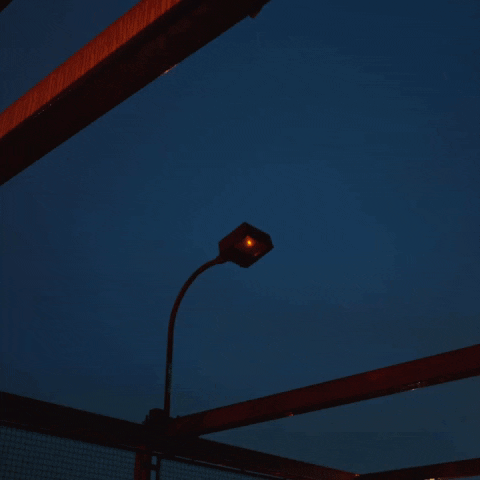
Act as if You’re Really There
Don’t turn your office into a generic TV backdrop. Video is boring enough. The more you remove from the frame, the less visual data you are providing about who you are, where you live, how you work, and what you care about. If you were watching a remote interview with, say, Bong Joon-ho (the South Korean director of Parasite) would you want him sitting on a blank set with a ficus plant? Of course not. You would want to see him in his real office or studio. What are the posters on his wall? The books on his shelf? Who are his influences?
Douglas Rushkoff (OneZero)
Useful advice in this post from Douglas Rushkoff. I appreciate his reflection that, "every pixel is a chance to share information about your process and proclivities."
People Are Looping Videos to Fake Paying Attention in Zoom Meetings
On Twitter, people are finding ways to use the Zoom Rooms custom background feature to slap an image of themselves in their frames. You can record a short, looping video as your background, or take a photo of yourself looking particularly attentive, depending on the level of believability you're going for. Zoom says it isn't using any kind of video or audio analysis to track attention, so this is mostly for your human coworkers and boss' sake. With one of these images on your background, you're free to leave your seat and go make a sandwich while your boss thinks you're still there paying attention:
Samantha Cole (Vice)
As an amusing counterpoint to the above article, I find it funny that people are using video backgrounds in this way!
A Guide to Hosting Virtual Events with Zoom
There are lots of virtual event tools out there, like Google Hangouts, YouTube Live, Vimeo Live. For this guide I’ll delve into how to use Zoom specifically. However, a lot of the best practices explored here are broadly applicable to other tools. My goal is that reading this document will give you all the tools you need to be able to set up a meeting and host it on Zoom (or other platforms) in fun and interactive ways.
Alexa Kutler (Google Docs)
This is an incredible 28-page document that explains how to set up Zoom meetings for success. Highly recommended!

The rise of the bio-surveillance state
Elements of Asia’s bio-surveillance revolution may not be as far off as citizens of Western democracies assume. On 24 March an emergency bill, which would relax limits on urgent surveillance warrants, went before the House of Lords. In any case, Britain’s existing Investigatory Powers Act already allows the state to seize mobile data if national security justifies it. In another sign that a new era in data rights is dawning, the EU is reviewing its recent white paper on AI regulation and delaying a review of online privacy rules. Researchers in both Britain (Oxford) and the US (MIT) are developing virus-tracking apps inviting citizens to provide movement data voluntarily. How desperate would the search for “needles in haystacks” have to get for governments to make such submissions compulsory? Israel’s draconian new regulations – which allegedly include tapping phone cameras and microphones – show how far down this road even broadly Western democracies might go to save lives and economies.
Jeremy Cliffe (New Statesman)
We need urgent and immediate action around the current criss. But we also need safeguards and failsafes so that we don't end up with post-pandemic authoritarian regimes.
The economy v our lives? It's a false choice – and a deeply stupid one
Soon enough, as hospitals around the world overflow with coronavirus patients, exhausting doctors, nurses, orderlies, custodians, medical supplies, ventilators and hospital cash accounts, doctors will have to make moral choices about who lives or dies. We should not supersede their judgment based on a false choice. Economic depression will come, regardless of how many we let die. The question is how long and devastating it will be.
Siva Vaidhyanathan (The Guardian)
Not exactly a fun read, but the truth is the world's economy is shafted no matter which way we look at it. And as I tweeted the other day, there's no real thing that exists, objectively speaking called 'the economy' which is separate from human relationships.
How the Pandemic Will End
Pandemics can also catalyze social change. People, businesses, and institutions have been remarkably quick to adopt or call for practices that they might once have dragged their heels on, including working from home, conference-calling to accommodate people with disabilities, proper sick leave, and flexible child-care arrangements. “This is the first time in my lifetime that I’ve heard someone say, ‘Oh, if you’re sick, stay home,’” says Adia Benton, an anthropologist at Northwestern University. Perhaps the nation will learn that preparedness isn’t just about masks, vaccines, and tests, but also about fair labor policies and a stable and equal health-care system. Perhaps it will appreciate that health-care workers and public-health specialists compose America’s social immune system, and that this system has been suppressed.
Ed Yong (The Atlantic)
Much of this is a bit depressing, but I've picked up on the more positive bit towards the end. See also the article I wrote earlier this week: People seem not to see that their opinion of the world is also a confession of character
Enjoy this? Sign up for the weekly roundup, become a supporter, or download Thought Shrapnel Vol.1: Personal Productivity!
Header image by Sincerely Media.
Friday fumings
My bet is that you've spent most of this week reading news about the global pandemic. Me too. That's why I decided to ensure it's not mentioned at all in this week's link roundup!
Let me know what resonates with you... 😷
Finding comfort in the chaos: How Cory Doctorow learned to write from literally anywhere
My writing epiphany — which arrived decades into my writing career — was that even though there were days when the writing felt unbearably awful, and some when it felt like I was mainlining some kind of powdered genius and sweating it out through my fingertips, there was no relation between the way I felt about the words I was writing and their objective quality, assessed in the cold light of day at a safe distance from the day I wrote them. The biggest predictor of how I felt about my writing was how I felt about me. If I was stressed, underslept, insecure, sad, hungry or hungover, my writing felt terrible. If I was brimming over with joy, the writing felt brilliant.
Cory Doctorow (CBC)
Such great advice in here from the prolific Cory Doctorow. Not only is he a great writer, he's a great speaker, too. I think both come from practice and clarity of thought.
Slower News
Trends, micro-trends & edge cases.
This is a site that specialises in important and interesting news that is updated regularly, but not on an hour-by-hour (or even daily) basis. A wonderful antidote to staring at your social media feed for updates!
SCARF: The 5 key ingredients for psychological safety in your team
There’s actually a mountain of compelling evidence that the single most important ingredient for healthy, high-performing teams is simple: it’s trust. When Google famously crunched the data on hundreds of high-performing teams, they were surprised to find that one variable mattered more than any other: “emotional safety.” Also known as: “psychological security.” Also known as: trust.
Matt Thompson
I used to work with Matt at Mozilla, and he's a pretty great person to work alongside. He's got a book coming out this year, and Laura (another former Mozilla colleague, but also a current co-op colleague!) drew my attention to this.
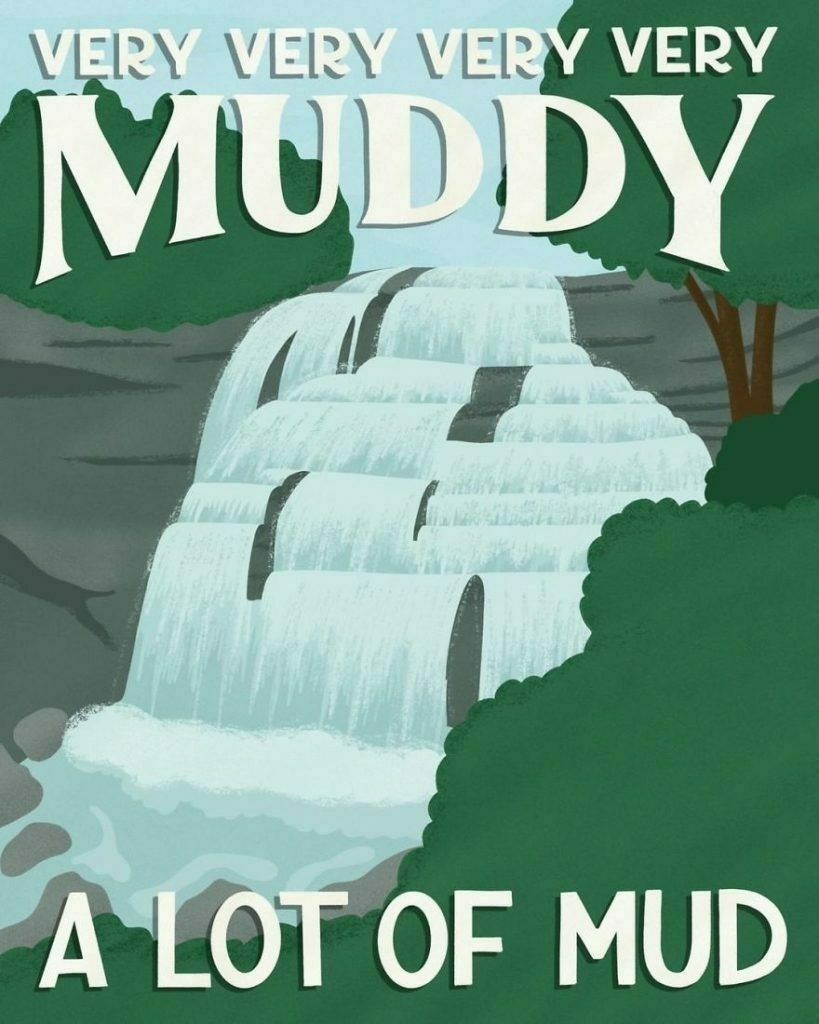
I Illustrated National Parks In America Based On Their Worst Review And I Hope They Will Make You Laugh (16 Pics)
I'm an illustrator and I have always had a personal goal to draw all 62 US National Parks, but I wanted to find a unique twist for the project. When I found that there are one-star reviews for every single park, the idea for Subpar Parks was born. For each park, I hand-letter a line from the one-star reviews alongside my illustration of each park as my way of putting a fun and beautiful twist on the negativity.
Amber Share (Bored Panda)
I love this, especially as the illustrations are so beautiful and the comments so banal.
What Does a Screen Do?
We know, for instance, that smartphone use is associated with depression in teens. Smartphone use certainly could be the culprit, but it’s also possible the story is more complicated; perhaps the causal relationship works the other way around, and depression drives teenagers to spend more time on their devices. Or, perhaps other details about their life—say, their family background or level of physical activity—affect both their mental health and their screen time. In short: Human behavior is messy, and measuring that behavior is even messier.
Jane C. Hu (Slate)
This, via Ian O'Byrne, is a useful read for anyone who deals with kids, especially teenagers.
13 reads to save for later: An open organization roundup
For months, writers have been showering us with multiple, ongoing series of articles, all focused on different dimensions of open organizational theory and practice. That's led to to a real embarrassment of riches—so many great pieces, so little time to catch them all.
So let's take moment to reflect. If you missed one (or several) now's your chance to catch up.
Bryan Behrenshausen (Opensource.com)
I've already shared some of the articles in this roundup, but I encourage you to check out the rest, and subscribe to opensource.com. It's a great source of information and guidance.
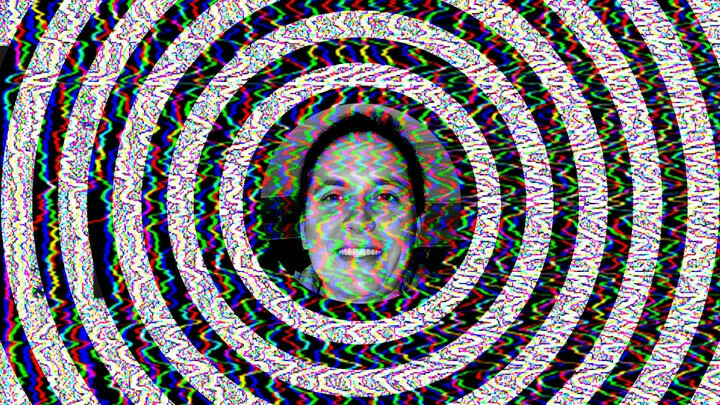
It Doesn’t Matter If Anyone Exists or Not
Capitalism has always transformed people into latent resources, whether as labor to exploit for making products or as consumers to devour those products. But now, online services make ordinary people enact both roles: Twitter or Instagram followers for conversion into scrap income for an influencer side hustle; Facebook likes transformed into News Feed-delivery refinements; Tinder swipes that avoid the nuisance of the casual encounters that previously fueled urban delight. Every profile pic becomes a passerby—no need for an encounter, even.
Ian Bogost (The Atlantic)
An amazing piece of writing, in which Ian Bogost not only surveys previous experiences with 'strangers' but applies it to the internet. As he points out, there is a huge convenience factor in not knowing who made your sandwich. I've pointed out before that capitalism is all about scale, and at the end of the day, caring doesn't scale, and scaling doesn't care.
You don't want quality time, you want garbage time
We desire quality moments and to make quality memories. It's tempting to think that we can create quality time just by designating it so, such as via a vacation. That generally ends up backfiring due to our raised expectations being let down by reality. If we expect that our vacation is going to be perfect, any single mistake ruins the experience
In contrast, you are likely to get a positive surprise when you have low expectations, which is likely the case during a "normal day". It’s hard to match perfection, and easy to beat normal. Because of this, it's more likely quality moments come out of chance
If you can't engineer quality time, and it's more a matter of random events, it follows that you want to increase how often such events happen. You can't increase the probability, but you can increase the duration for such events to occur. Put another way, you want to increase quantity of time, and not engineer quality time.
Leon Lin (Avoid boring people)
There's a lot of other interesting-but-irrelevant things in this newsletter, so scroll to the bottom for the juicy bit. I've quoted the most pertinent point, which I definitely agree with. There's wisdom in Gramsci's quotation about having "pessimism of the intellect, optimism of the will".
The Prodigal Techbro
The prodigal tech bro doesn’t want structural change. He is reassurance, not revolution. He’s invested in the status quo, if we can only restore the founders’ purity of intent. Sure, we got some things wrong, he says, but that’s because we were over-optimistic / moved too fast / have a growth mindset. Just put the engineers back in charge / refocus on the original mission / get marketing out of the c-suite. Government “needs to step up”, but just enough to level the playing field / tweak the incentives. Because the prodigal techbro is a moderate, centrist, regular guy. Dammit, he’s a Democrat. Those others who said years ago what he’s telling you right now? They’re troublemakers, disgruntled outsiders obsessed with scandal and grievance. He gets why you ignored them. Hey, he did, too. He knows you want to fix this stuff. But it’s complicated. It needs nuance. He knows you’ll listen to him. Dude, he’s just like you…
Maria Farrell (The Conversationalist)
Now that we're experiencing something of a 'techlash' it's unsurprising that those who created surveillance capitalism have had a 'road to Damascus' experience. That doesn't mean, as Maria Farrell points out, that we should all of a sudden consider them to be moral authorities.
Enjoy this? Sign up for the weekly roundup, become a supporter, or download Thought Shrapnel Vol.1: Personal Productivity!
Friday filchings
I'm having to write this ahead of time due to travel commitments. Still, there's the usual mixed bag of content in here, everything from digital credentials through to survival, with a bit of panpsychism thrown in for good measure.
Did any of these resonate with you? Let me know!
Competency Badges: the tail wagging the dog?
Recognition is from a certain point of view hyperlocal, and it is this hyperlocality that gives it its global value – not the other way around. The space of recognition is the community in which the competency is developed and activated. The recognition of a practitioner in a community is not reduced to those generally considered to belong to a “community of practice”, but to the intersection of multiple communities and practices, starting with the clients of these practices: the community of practice of chefs does not exist independently of the communities of their suppliers and clients. There is also a very strong link between individual recognition and that of the community to which the person is identified: shady notaries and politicians can bring discredit on an entire community.
Serge Ravet
As this roundup goes live I'll be at Open Belgium, and I'm looking forward to catching up with Serge while I'm there! My take on the points that he's making in this (long) post is actually what I'm talking about at the event: open initiatives need open organisations.
Universities do not exist ‘to produce students who are useful’, President says
Mr Higgins, who was opening a celebration of Trinity College Dublin’s College Historical Debating Society, said “universities are not there merely to produce students who are useful”.
“They are there to produce citizens who are respectful of the rights of others to participate and also to be able to participate fully, drawing on a wide range of scholarship,” he said on Monday night.
The President said there is a growing cohort of people who are alienated and “who feel they have lost their attachment to society and decision making”.
Jack Horgan-Jones (The Irish Times)
As a Philosophy graduate, I wholeheartedly agree with this, and also with his assessment of how people are obsessed with 'markets'.
Perennial philosophy
Not everyone will accept this sort of inclusivism. Some will insist on a stark choice between Jesus or hell, the Quran or hell. In some ways, overcertain exclusivism is a much better marketing strategy than sympathetic inclusivism. But if just some of the world’s population opened their minds to the wisdom of other religions, without having to leave their own faith, the world would be a better, more peaceful place. Like Aldous Huxley, I still believe in the possibility of growing spiritual convergence between different religions and philosophies, even if right now the tide seems to be going the other way.
Jules Evans (Aeon)
This is an interesting article about the philosophy of Aldous Huxley, whose books have always fascinated me. For some reason, I hadn't twigged that he was related to Thomas Henry Huxley (aka "Darwin's bulldog").

What the Death of iTunes Says About Our Digital Habits
So what really failed, maybe, wasn’t iTunes at all—it was the implicit promise of Gmail-style computing. The explosion of cloud storage and the invention of smartphones both arrived at roughly the same time, and they both subverted the idea that we should organize our computer. What they offered in its place was a vision of ease and readiness. What the idealized iPhone user and the idealized Gmail user shared was a perfect executive-functioning system: Every time they picked up their phone or opened their web browser, they knew exactly what they wanted to do, got it done with a calm single-mindedness, and then closed their device. This dream illuminated Inbox Zero and Kinfolk and minimalist writing apps. It didn’t work. What we got instead was Inbox Infinity and the algorithmic timeline. Each of us became a wanderer in a sea of content. Each of us adopted the tacit—but still shameful—assumption that we are just treading water, that the clock is always running, and that the work will never end.
Robinson Meyer (The Atlantic)
This is curiously-written (and well-written) piece, in the form of an ordered list, that takes you through the changes since iTunes launched. It's hard to disagree with the author's arguments.
Imagine a world without YouTube
But what if YouTube had failed? Would we have missed out on decades of cultural phenomena and innovative ideas? Would we have avoided a wave of dystopian propaganda and misinformation? Or would the internet have simply spiraled into new — yet strangely familiar — shapes, with their own joys and disasters?
Adi Robertson (The Verge)
I love this approach of imagining how the world would have been different had YouTube not been the massive success it's been over the last 15 years. Food for thought.
Big Tech Is Testing You
It’s tempting to look for laws of people the way we look for the laws of gravity. But science is hard, people are complex, and generalizing can be problematic. Although experiments might be the ultimate truthtellers, they can also lead us astray in surprising ways.
Hannah Fry (The New Yorker)
A balanced look at the way that companies, especially those we classify as 'Big Tech' tend to experiment for the purposes of engagement and, ultimately, profit. Definitely worth a read.

Trust people, not companies
The trend to tap into is the changing nature of trust. One of the biggest social trends of our time is the loss of faith in institutions and previously trusted authorities. People no longer trust the Government to tell them the truth. Banks are less trusted than ever since the Financial Crisis. The mainstream media can no longer be trusted by many. Fake news. The anti-vac movement. At the same time, we have a generation of people who are looking to their peers for information.
Lawrence Lundy (Outlier Ventures)
This post is making the case for blockchain-based technologies. But the wider point is a better one, that we should trust people rather than companies.
The Forest Spirits of Today Are Computers
Any sufficiently advanced technology is indistinguishable from nature. Agriculture de-wilded the meadows and the forests, so that even a seemingly pristine landscape can be a heavily processed environment. Manufactured products have become thoroughly mixed in with natural structures. Now, our machines are becoming so lifelike we can’t tell the difference. Each stage of technological development adds layers of abstraction between us and the physical world. Few people experience nature red in tooth and claw, or would want to. So, although the world of basic physics may always remain mindless, we do not live in that world. We live in the world of those abstractions.
George Musser (Nautilus)
This article, about artificial 'panpsychism' is really challenging to the reader's initial assumptions (well, mine at least) and really makes you think.
The man who refused to freeze to death
It would appear that our brains are much better at coping in the cold than dealing with being too hot. This is because our bodies’ survival strategies centre around keeping our vital organs running at the expense of less essential body parts. The most essential of all, of course, is our brain. By the time that Shatayeva and her fellow climbers were experiencing cognitive issues, they were probably already experiencing other organ failures elsewhere in their bodies.
William Park (BBC Future)
Not just one story in this article, but several with fascinating links and information.
Enjoy this? Sign up for the weekly roundup and/or become a supporter!
Header image by Tim Mossholder.
Friday facings
This week's links seem to have a theme about faces and looking at them through screens. I'm not sure what that says about either my network, or my interests, but there we are...
As ever, let me know what resonates with you, and if you have any thoughts on what's shared below!
The Age of Instagram Face
The human body is an unusual sort of Instagram subject: it can be adjusted, with the right kind of effort, to perform better and better over time. Art directors at magazines have long edited photos of celebrities to better match unrealistic beauty standards; now you can do that to pictures of yourself with just a few taps on your phone.
Jia Tolentino (The New Yorker)
People, especially women, but there's increasing pressure on young men too, are literally going to see plastic surgeons with 'Facetuned' versions of themselves. It's hard not to think that we're heading for a kind of dystopia when people want to look like cartoonish versions of themselves.
What Makes A Good Person?
What I learned as a child is that most people don’t even meet the responsibilities of their positions (husband, wife, teacher, boss, politicians, whatever.) A few do their duty, and I honor them for it, because it is rare. But to go beyond that and actually be a man of honor is unbelievably rare.
Ian Welsh
This question, as I've been talking with my therapist about, is one I ask myself all the time. Recently, I've settled on Marcus Aurelius' approach: "Waste no more time arguing about what a good man should be. Be one."
Boredom is but a window to a sunny day beyond the gloom
Boredom can be our way of telling ourselves that we are not spending our time as well as we could, that we should be doing something more enjoyable, more useful, or more fulfilling. From this point of view, boredom is an agent of change and progress, a driver of ambition, shepherding us out into larger, greener pastures.
Neel Burton (Aeon)
As I've discussed before, I'm not so sure about the fetishisation of 'boredom'. It's good to be creative and let the mind wander. But boredom? Nah. There's too much interesting stuff out there.

Resting Risk Face
Unlock your devices with a surgical mask that looks just like you.
I don't usually link to products in this roundup, but I'm not sure this is 100% serious. Good idea, though!
The world's biggest work-from-home experiment has been triggered by coronavirus
For some employees, like teachers who have conducted classes digitally for weeks, working from home can be a nightmare.
Jessie Yeung (CNN)
But in other sectors, this unexpected experiment has been so well received that employers are considering adopting it as a more permanent measure. For those who advocate more flexible working options, the past few weeks mark a possible step toward widespread -- and long-awaited -- reform.
Every cloud has a silver lining, I guess? Working from home is great, especially when you have a decent setup.
Setting Up Your Webcam, Lights, and Audio for Remote Work, Podcasting, Videos, and Streaming
Only you really know what level of clarity you want from each piece of your setup. Are you happy with what you have? Please, dear Lord, don't spend any money. This is intended to be a resource if you want more and don't know how to do it, not a stress or a judgment to anyone happy with their current setup
And while it's a lot of fun to have a really high-quality webcam for my remote work, would I have bought it if I didn't have a more intense need for high quality video for my YouTube stuff? Hell no. Get what you need, in your budget. This is just a resource.
This is a fantastic guide. I bought a great webcam when I saw it drop in price via CamelCamelCamel and bought a decent mic when I recorded the TIDE podcast wiht Dai. It really does make a difference.
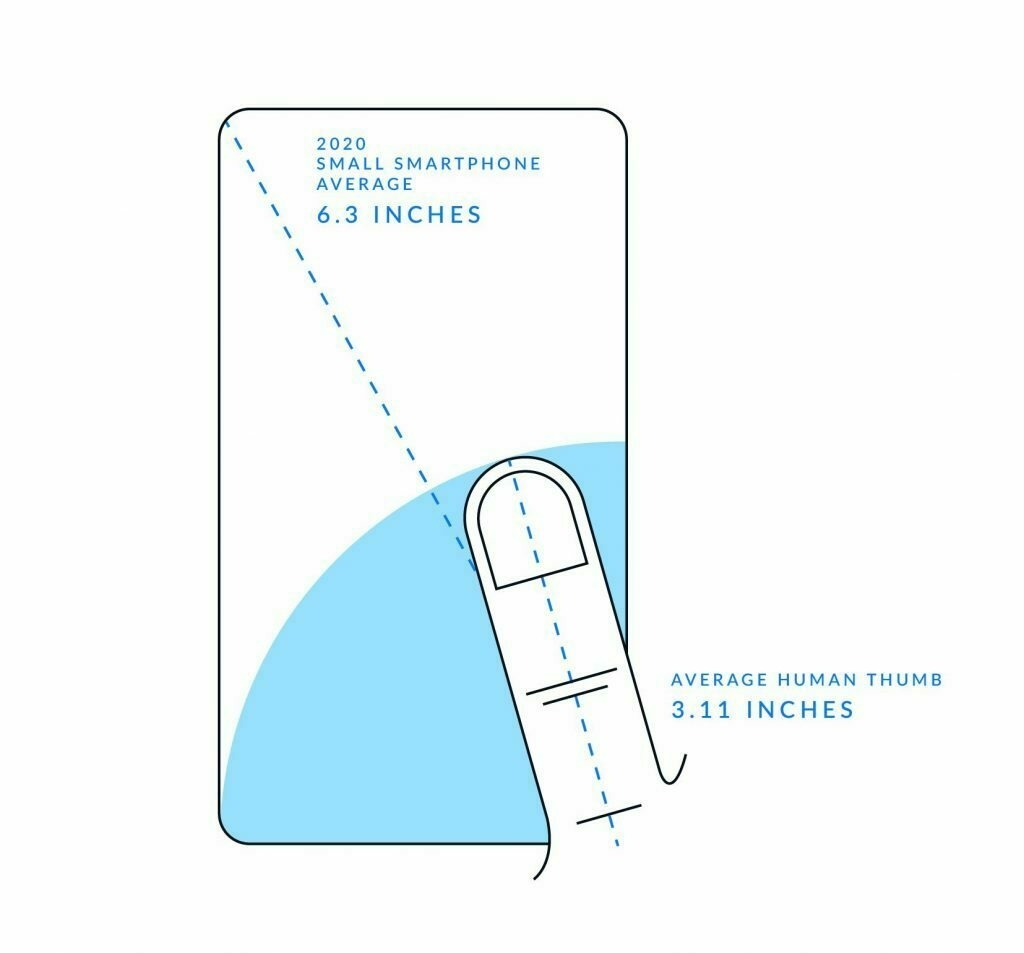
Large screen phones: a challenge for UX design (and human hands)
I know it might sound like I have more questions than answers, but it seems to me that we are missing out on a very basic solution for the screen size problem. Manufacturers did so much to increase the screen size, computational power and battery capacity whilst keeping phones thin, that switching the apps navigation to the bottom should have been the automatic response to this new paradigm.
Maria Grilo (Imaginary Cloud)
The struggle is real. I invested in a new phone this week (a OnePlus 7 Pro 5G) and, unlike the phone it replaced from 2017, it's definitely a hold-with-two-hands device.
Society Desperately Needs An Alternative Web
What has also transpired is a web of unbridled opportunism and exploitation, uncertainty and disparity. We see increasing pockets of silos and echo chambers fueled by anxiety, misplaced trust, and confirmation bias. As the mainstream consumer lays witness to these intentions, we notice a growing marginalization that propels more to unplug from these communities and applications to safeguard their mental health. However, the addiction technology has produced cannot be easily remedied. In the meantime, people continue to suffer.
Hessie Jones (Forbes)
Another call to re-decentralise the web, this time based on arguments about centralised services not being able to handle the scale of abuse and fraudulent activity.
UK Google users could lose EU GDPR data protections
It is understood that Google decided to move its British users out of Irish jurisdiction because it is unclear whether Britain will follow GDPR or adopt other rules that could affect the handling of user data.
If British Google users have their data kept in Ireland, it would be more difficult for British authorities to recover it in criminal investigations.
The recent Cloud Act in the US, however, is expected to make it easier for British authorities to obtain data from US companies. Britain and the US are also on track to negotiate a broader trade agreement.
Samuel Gibbs (The Guardian)
I'm sure this is a business decision as well, but I guess it makes sense given post-Brexit uncertainty about privacy legislation. It's a shame, though, and a little concerning.
Enjoy this? Sign up for the weekly roundup, become a supporter, or download Thought Shrapnel Vol.1: Personal Productivity!
Header image by Luc van Loon
Friday featherings
Behold! The usual link round-up of interesting things I've read in the last week.
Feel free to let me know if anything particularly resonated with you via the comments section below...
Part I - What is a Weird Internet Career?
Weird Internet Careers are the kinds of jobs that are impossible to explain to your parents, people who somehow make a living from the internet, generally involving a changing mix of revenue streams. Weird Internet Career is a term I made up (it had no google results in quotes before I started using it), but once you start noticing them, you’ll see them everywhere.
Gretchen McCulloch (All Things Linguistic)
I love this phrase, which I came across via Dan Hon's newsletter. This is the first in a whole series of posts, which I am yet to explore in its entirety. My aim in life is now to make my career progressively more (internet) weird.
Nearly half of Americans didn’t go outside to recreate in 2018. That has the outdoor industry worried.
While the Outdoor Foundation’s 2019 Outdoor Participation Report showed that while a bit more than half of Americans went outside to play at least once in 2018, nearly half did not go outside for recreation at all. Americans went on 1 billion fewer outdoor outings in 2018 than they did in 2008. The number of adolescents ages 6 to 12 who recreate outdoors has fallen four years in a row, dropping more than 3% since 2007
The number of outings for kids has fallen 15% since 2012. The number of moderate outdoor recreation participants declined, and only 18% of Americans played outside at least once a week.
Jason Blevins (The Colorado Sun)
One of Bruce Willis' lesser-known films is Surrogates (2009). It's a short, pretty average film with a really interesting central premise: most people stay at home and send their surrogates out into the world. Over a decade after the film was released, a combination of things (including virulent viruses, screen-focused leisure time, and safety fears) seem to suggest it might be a predictor of our medium-term future.
I’ll Never Go Back to Life Before GDPR
It’s also telling when you think about what lengths companies have had to go through to make the EU versions of their sites different. Complying with GDPR has not been cheap. Any online business could choose to follow GDPR by default across all regions and for all visitors. It would certainly simplify things. They don’t, though. The amount of money in data collection is too big.
Jill Duffy (OneZero)
This is a strangely-titled article, but a decent explainer on what the web looks and feels like to those outside the EU. The author is spot-on when she talks about how GDPR and the recent California Privacy Law could be applied everywhere, but they're not. Because surveillance capitalism.
You Are Now Remotely Controlled
The belief that privacy is private has left us careening toward a future that we did not choose, because it failed to reckon with the profound distinction between a society that insists upon sovereign individual rights and one that lives by the social relations of the one-way mirror. The lesson is that privacy is public — it is a collective good that is logically and morally inseparable from the values of human autonomy and self-determination upon which privacy depends and without which a democratic society is unimaginable.
Shoshana Zuboff (The New York Times)
I fear that the length of Zuboff's (excellent) book on surveillance capitalism, her use of terms in this article such as 'epistemic inequality, and the subtlety of her arguments, may mean that she's preaching to the choir here.
How to Raise Media-Savvy Kids in the Digital Age
The next time you snap a photo together at the park or a restaurant, try asking your child if it’s all right that you post it to social media. Use the opportunity to talk about who can see that photo and show them your privacy settings. Or if a news story about the algorithms on YouTube comes on television, ask them if they’ve ever been directed to a video they didn’t want to see.
Meghan Herbst (WIRED)
There's some useful advice in this WIRED article, especially that given by my friend Ian O'Byrne. The difficulty I've found is when one of your kids becomes a teenager and companies like Google contact them directly telling them they can have full control of their accounts, should they wish...
Control-F and Building Resilient Information Networks
One reason the best lack conviction, though, is time. They don’t have the time to get to the level of conviction they need, and it’s a knotty problem, because that level of care is precisely what makes their participation in the network beneficial. (In fact, when I ask people who have unintentionally spread misinformation why they did so, the most common answer I hear is that they were either pressed for time, or had a scarcity of attention to give to that moment)
But what if — and hear me out here — what if there was a way for people to quickly check whether linked articles actually supported the points they claimed to? Actually quoted things correctly? Actually provided the context of the original from which they quoted
And what if, by some miracle, that function was shipped with every laptop and tablet, and available in different versions for mobile devices?
This super-feature actually exists already, and it’s called control-f.
Roll the animated GIF!
Mike Caulfield (Hapgood)
I find it incredible, but absolutely believable, that only around 10% of internet users know how to use Ctrl-F to find something within a web page. On mobile, it's just as easy, as there's an option within most (all?) browsers to 'search within page'. I like Mike's work, as not only is it academic, it's incredibly practical.
EdX launches for-credit credentials that stack into bachelor's degrees
The MicroBachelors also mark a continued shift for EdX, which made its name as one of the first MOOC providers, to a wider variety of educational offerings
In 2018, EdX announced several online master's degrees with selective universities, including the Georgia Institute of Technology and the University of Texas at Austin.
Two years prior, it rolled out MicroMasters programs. Students can complete the series of graduate-level courses as a standalone credential or roll them into one of EdX's master's degrees.
That stackability was something EdX wanted to carry over into the MicroBachelors programs, Agarwal said. One key difference, however, is that the undergraduate programs will have an advising component, which the master's programs do not.
Natalie Schwartz (Education Dive)
This is largely a rewritten press release with a few extra links, but I found it interesting as it's a concrete example of a couple of things. First, the ongoing shift in Higher Education towards students-as-customers. Second, the viability of microcredentials as a 'stackable' way to build a portfolio of skills.
Note that, as a graduate of degrees in the Humanities, I'm not saying this approach can be used for everything, but for those using Higher Education as a means to an end, this is exactly what's required.
How much longer will we trust Google’s search results?
Today, I still trust Google to not allow business dealings to affect the rankings of its organic results, but how much does that matter if most people can’t visually tell the difference at first glance? And how much does that matter when certain sections of Google, like hotels and flights, do use paid inclusion? And how much does that matter when business dealings very likely do affect the outcome of what you get when you use the next generation of search, the Google Assistant?
Dieter Bohn (The Verge)
I've used DuckDuckGo as my go-to search engine for years now. It used to be that I'd have to switch to Google for around 10% of my searches. That's now down to zero.
Coaching – Ethics
One of the toughest situations for a product manager is when they spot a brewing ethical issue, but they’re not sure how they should handle the situation. Clearly this is going to be sensitive, and potentially emotional. Our best answer is to discover a solution that does not have these ethical concerns, but in some cases you won’t be able to, or may not have the time.
[...]
I rarely encourage people to leave their company, however, when it comes to those companies that are clearly ignoring the ethical implications of their work, I have and will continue to encourage people to leave.
Marty Cagan (SVPG)
As someone with a sensitive radar for these things, I've chosen to work with ethical people and for ethical organisations. As Cagan says in this post, if you're working for a company that ignores the ethical implications of their work, then you should leave. End of story.
Image via webcomic.name
Friday foggings
I've been travelling this week, so I've had plenty of time to read and digest a whole range of articles. In fact, because of the luxury of that extra time, I decided to write some comments about each link, as well as the usual quotation.
Let me know what you think about this approach. I may not have the bandwidth to do it every week, but if it's useful, I'll try and prioritise it. As ever, particularly interested in hearing from supporters!
Education and Men without Work (National Affairs) — “Unlike the Great Depression, however, today's work crisis is not an unemployment crisis. Only a tiny fraction of workless American men nowadays are actually looking for employment. Instead we have witnessed a mass exodus of men from the workforce altogether. At this writing, nearly 7 million civilian non-institutionalized men between the ages of 25 and 54 are neither working nor looking for work — over four times as many as are formally unemployed.”
This article argues that the conventional wisdom, that men are out of work because of a lack of education, may be based on false assumptions. In fact, a major driver seems to be the number of men (more than 50% of working-age men, apparently) who live in child-free homes. What do these men end up doing with their time? Many of them are self-medicating with drugs and screens.
Fresh Cambridge Analytica leak ‘shows global manipulation is out of control’ (The Guardian) — “More than 100,000 documents relating to work in 68 countries that will lay bare the global infrastructure of an operation used to manipulate voters on “an industrial scale” are set to be released over the next months.”
Sadly, I think the response to these documents will be one of apathy. Due to the 24-hour news cycle and the stream of 'news' on social networks, the voting public grow tired of scandals and news stories that last for months and years.
Funding (Sussex Royals) — “The Sovereign Grant is the annual funding mechanism of the monarchy that covers the work of the Royal Family in support of HM The Queen including expenses to maintain official residences and workspaces. In this exchange, The Queen surrenders the revenue of the Crown Estate and in return, a portion of these public funds are granted to The Sovereign/The Queen for official expenditure.”
I don't think I need to restate my opinions on the Royal Family, privilege, and hierarchies / coercive power relationships of all shapes and sizes. However, as someone pointed out on Mastodon, this page by 'Harry and Meghan' is quietly subversive.
How to sell good ideas (New Statesman) — “It is true that [Malcolm] Gladwell sometimes presses his stories too militantly into the service of an overarching idea, and, at least in his books, can jam together materials too disparate to cohere (Poole referred to his “relentless montage”). The New Yorker essay, which constrains his itinerant curiosity, is where he does his finest work (the best of these are collected in 2009’s What The Dog Saw). For the most part, the work of his many imitators attests to how hard it is to do what he does. You have to be able to write lucid, propulsive prose capable of introducing complex ideas within a magnetic field of narrative. You have to leave your desk and talk to people (he never stopped being a reporter). Above all, you need to acquire an extraordinary eye for the overlooked story, the deceptively trivial incident, the minor genius. Gladwell shares the late Jonathan Miller’s belief that “it is in the negligible that the considerable is to be found”.”
A friend took me to see Gladwell when he was in Newcastle-upon-Tyne touring with 'What The Dog Saw'. Like the author of this article, I soon realised that Gladwell is selling something quite different to 'science' or 'facts'. And so long as you're OK with that, you can enjoy (as I do) his podcasts and books.
Just enough Internet: Why public service Internet should be a model of restraint (doteveryone) — “We have not yet done a good job of defining what good digital public service really looks like, of creating digital charters that match up to those of our great institutions, and it is these statements of values and ways of working – rather than any amount of shiny new technology – that will create essential building blocks for the public services of the future.”
While I attended the main MozFest weekend event, I missed the presentation and other events that happened earlier in the week. I definitely agree with the sentiment behind the transcript of this talk by Rachel Coldicutt. I'm just not sure it's specific enough to be useful in practice.
Places to go in 2020 (Marginal Revolution) — “Here is the mostly dull NYT list. Here is my personal list of recommendations for you, noting I have not been to all of the below, but I am in contact with many travelers and paw through a good deal of information."
This list by Tyler Cowen is really interesting. I haven't been to any of the places on this list, but I now really want to visit Eastern Bali and Baku in Azerbaijan.
Reasons not to scoff at ghosts, visions and near-death experiences (Aeon) — “Sure, the dangers of gullibility are evident enough in the tragedies caused by religious fanatics, medical quacks and ruthless politicians. And, granted, spiritual worldviews are not good for everybody. Faith in the ultimate benevolence of the cosmos will strike many as hopelessly irrational. Yet, a century on from James’s pragmatic philosophy and psychology of transformative experiences, it might be time to restore a balanced perspective, to acknowledge the damage that has been caused by stigma, misdiagnoses and mis- or overmedication of individuals reporting ‘weird’ experiences. One can be personally skeptical of the ultimate validity of mystical beliefs and leave properly theological questions strictly aside, yet still investigate the salutary and prophylactic potential of these phenomena.”
I'd happily read a full-length book on this subject, as it's a fascinating area. The tension between knowing that much/all of the phenomena is reducible to materiality and mechanics may explain what's going on, but it doesn't explain it away...
Surveillance Tech Is an Open Secret at CES 2020 (OneZero) — “Lowe offered one explanation for why these companies feel so comfortable marketing surveillance tech: He says that the genie can’t be put back in the bottle, so barring federal regulation that bans certain implementations, it’s increasingly likely that some company will fill the surveillance market. In other words, if Google isn’t going to work with the cops, Amazon will. And even if Amazon decides not to, smaller companies out of the spotlight still will.”
I suppose it should come as no surprise that, in this day and age, companies like Cyberlink, previously known for their PowerDVD software, have moved into the very profitable world of surveillance capitalism. What's going to stop its inexorable rise? I can only think of government regulation (with teeth).
‘Techlash’ Hits College Campuses (New York Times) — “Some recent graduates are taking their technical skills to smaller social impact groups instead of the biggest firms. Ms. Dogru said that some of her peers are pursuing jobs at start-ups focused on health, education and privacy. Ms. Harbour said Berkeley offers a networking event called Tech for Good, where alumni from purpose-driven groups like Code for America and Khan Academy share career opportunities.”
I'm not sure this is currently as big a 'movement' as suggested in the article, but I'm glad the wind is blowing in this direction. As with other ethically-dubious industries, companies involved in surveillance capitalism will have to pay people extraordinarily well to put aside their moral scruples.
Tradition is Smarter Than You Are (The Scholar's Stage) — “To extract resources from a population the state must be able to understand that population. The state needs to make the people and things it rules legible to agents of the government. Legibility means uniformity. States dream up uniform weights and measures, impress national languages and ID numbers on their people, and divvy the country up into land plots and administrative districts, all to make the realm legible to the powers that be. The problem is that not all important things can be made legible. Much of what makes a society successful is knowledge of the tacit sort: rarely articulated, messy, and from the outside looking in, purposeless. These are the first things lost in the quest for legibility. Traditions, small cultural differences, odd and distinctive lifeways... are all swept aside by a rationalizing state that preserves (or in many cases, imposes) only what it can be understood and manipulated from the 2,000 foot view. The result... are many of the greatest catastrophes of human history.”
One of the books that's been on my 'to-read' list for a while is 'Seeing Like a State', written by James C. Scott and referenced in this article. I'm no believer in tradition for the sake of it but, I have to say, that a lot of the superstitions of my maternal grandmother, and a lot of the rituals that come with religion are often very practical in nature.
Image by Michael Schlegel (via kottke.org)
Friday fertilisations
I've read so much stuff over the past couple of months that it's been a real job whittling down these links. In the end I gave up and shared a few more than usual!
Image via Kottke.org
Friday facilitations
This week, je presente...
Image of hugelkultur bed via Sid
Friday fluctuations
Have a quick skim through these links that I came across this week and found interesting:
Image from Do It Yurtself



